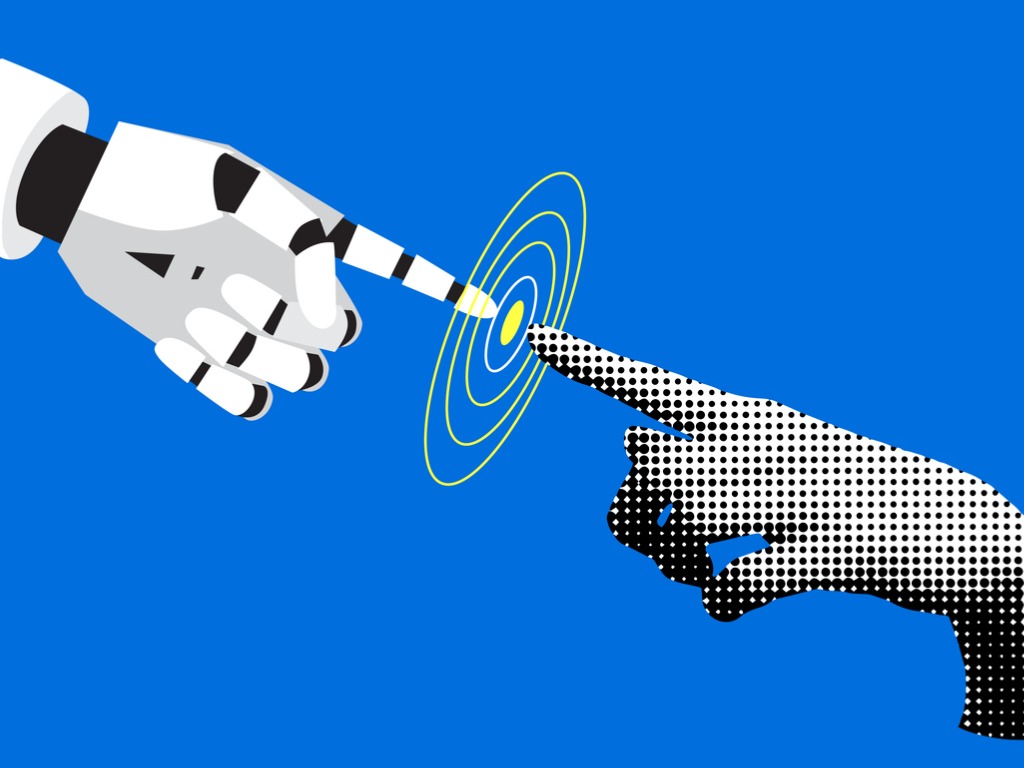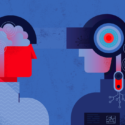
Keep a cool head and capitalise on AI’s positive impacts, explains Shelagh Donnelly, founder of the Exceptional EA website
The rise of AI represents the biggest change to the EA working landscape that we’ve ever faced. Against a backdrop of constant and rapid change and development, it can be easy to feel overwhelmed or daunted, but by staying informed and curious, we can harness its power for positive change in our careers.
If you’re amongst those who’ve been reading my Exceptional EA website since I began publishing it in 2013, you’ll know I’ve been writing about digital/tech disruptions and innovations for many years. I’ve always encouraged learning through play, but with GenAI/AI, I also recommend considering risk and reputation1 management. AI is increasingly factoring into cybersecurity operations, too. Many would argue AI is right up there with (and, some say, exceeding the threat of) employees as the most significant threats to cybersecurity.7
In this piece, I’ll be sharing with you a selection of my recent AI insights from a range of sources. Some of these may feel daunting, but the key to this period of technological change is keeping a cool head and capitalising on AI’s positive impacts.
Risky Business? AI and Risk Management
Effective risk management practices include scrutinising opportunities as well as risks, determining how much risk you’re willing to take (risk appetite), identifying and taking steps to mitigate risks, and repeating the process on a routine basis. Just as blindly incorporating new resources can be risky, there’s risk in ignoring AI resources available to us. Whether or not you’re in a work environment currently making use of ChatGPT, Claude, Copilot, Gemini, and other AI tools, it makes sense to learn how and why to use such resources.
When it comes to career risks, being uninformed is a big one. If you’ve seen me speak at a conference or in your workplace, you may have heard me speak about something I call informed optimism. Positive by nature, I’m also pragmatic. I believe that the more informed and aware we are of what’s going on in the world around us, the better positioned we are to adapt and prepare for challenges and opportunities that may be coming our way. This, in turn, helps support both personal and career resilience.
A New “Wild West”?
Most of us are living in countries without regulations on AI. Jurisdictions around the globe have rules and regulations on all manner of activities. From when and where we can park cars or cross a street on foot to regulations for financial institutions and securities, as well as health and air and water quality, we’re used to a level of regulatory control. In contrast, the majority of us are living and working in environments without local or federal regulations placed upon increasingly powerful AI tools. It’s been suggested some countries are delaying regulation to boost competitiveness with China, and the cynical among us might suggest an absence of regulations serves the interests of AI companies, which can be valued in terms of billions, whatever your currency.
While the European Union established the EU AI Act2 in 2023, most of our countries are still in the wild west when it comes to AI regulations. The EU AI Act3 represents the first comprehensive AI law anywhere around the globe.
Also in Europe, where entities such as AI Sweden have been functioning since 2019, fall (autumn) 2025 will see the launch of New Nordics AI,5 an entity reflecting collaboration between leading organisations from Denmark, Finland, Iceland, Norway, and Sweden. This cooperative initiative is expected to accelerate AI adoption and innovation across the region, while adhering to regulations.
As I write this, US legislators are considering a proposed Act containing a provision that would, as reported by Forbes, result in a “…10-year moratorium on state and local regulation of artificial intelligence systems” that “would prohibit cities and states from setting their own rules on automated decision-making, algorithmic bias, facial recognition or data privacy in AI applications.”6
Heavily Hit? AI and Job Losses
As reported by CNN along with others, Dario Armodei, CEO of Anthropic, one of the top AI labs, projected13 that AI tools “…could eliminate half of entry-level, white-collar jobs and spike unemployment to as much as 20% in the next one to five years.”
Anthropic8 is the entity behind AI resource Claude,9 a highly regarded competitor to ChatGPT, Gemini, Perplexity, and so on. One of the resulting headlines reads, “Behind the Curtain: A white-collar bloodbath”.
Is this hype, PR, or a timely alert? I’ve read articles dismissing Armodei’s projection as self-serving PR for his company, yet I’ve also been paying attention to other sources and their perspectives on AI risks and opportunities.
Amodei is seen as a credible AI expert. He and his sister Daniela Amodei, the Anthropic president, are both former OpenAI VPs. It’s OpenAI10 that brings us ChatGPT, and the Amodeis are two of a handful of OpenAI employees who left that firm over “…differences over the group’s direction after it took a landmark $1 billion investment from Microsoft in 2019.”11 They co-founded Anthropic in 2021, and the firm’s governance statements seem intended to reflect the Anthropic ethos: “Anthropic is a Public Benefit Corporation, whose purpose is the responsible development and maintenance of advanced AI for the long-term benefit of humanity.”12
You’ll note Armodei referenced entry level positions and may consider roles such as yours safe. It would seem, though, that a 20% unemployment rate would impact more than solely entry level roles – and others have cautioned that AI will impact careers across org charts.
Nor is Armodei alone in projecting job losses within white collar careers. Expanding on its Future of Jobs 2025 report, the World Economic Forum (WEF) stated on January 7, 2025 that Administrative Assistants’ roles “…remain among the fastest declining … as generative AI rapidly reshapes the labour market.”15 Administration managers’ roles ranked 14th on the WEF’s list of “top largest declining jobs”, while the Administrative Assistant role landed in the number two position on the same list.
Another Point of View
Speaking during the June 11, 2025 VivaTech tech trade show in Paris about Amodei’s comments, Nvidia CEO Jensen Huang expressed disagreement “…with almost everything”16 Amodei said. According to Huang, “Everybody’s jobs will be changed. Some jobs will be obsolete, but many jobs are going to be created.”
The Godfather of AI
Geoffrey Hinton, the British Canadian Nobel Prize winner who’s referred to as the Godfather of AI, is a computer scientist, cognitive scientist, and cognitive psychologist who earned his PhD in Artificial Intelligence at the University of Edinburgh. When he speaks, I pay attention. By the time you read this, I’ll have invested time in (virtually) attending a summer 2025 AI presentation from this professor emeritus at Canada’s University of Toronto (U of T).
For a decade, Hinton combined his academic career at U of T with a significant role at Google. He left that role in 2023 so that, in his words, “I could talk freely at a conference” about how dangerous AI could be. At the same time, Hinton is unequivocal in his conviction that AI will revolutionise science and medicine for the better. During his June 16, 2025 interview with the Diary of a CEO17podcast host Steven Bartlett, Hinton identified paralegals’ and customer service reps’ jobs as among those on the chopping block.
When asked about safe jobs, Hinton spoke about plumbing as a good career choice. There are others, yet, just as earlier industrial revolutions saw machinery take over jobs previously reliant on human muscles, Hinton anticipated AI taking over what he referred to as “mundane human intellectual labour.”
Staying savvy as a solution?
It may be true that it’s the person using AI who will take your job, rather than AI itself… and yet, for many jobs, we’ll need far fewer people.
So says Hinton, and I have respect for his thoughtful and highly informed perspectives. There are some who suggest jobs will quietly shift and that employers will simply not re-hire humans when an employee chooses to resign. While that may be the case in some circumstances, have a look at the following results of recent surveys by the World Economic Forum and on behalf of the international recruitment firm Adecco Group.
41% of employers anticipate AI-driven workforce reductions. That’s according to the WEF, which published The Future of Jobs Report 202518 on January 7 this year. The WEF found that, while 77% of employers plan to upskill workers in response to AI’s impact on business models, “…41% plan to reduce their workforce as AI automates certain tasks.”19 Bear in mind that, in most instances, the WEF’s reports, statistics, and projections are broad ranging, and not specific to your role.
The opportunity to transition?
I found it interesting that the WEF found 50% of employers expect to “transition” employees whose roles are exposed to AI disruption “…into other parts of their business, an opportunity to alleviate skills shortages while reducing the human cost of technological transformation.”19
Hinton, in his June 2025 podcast interview, pointed to a past example of this approach. While we treat access to automated teller machines (ATMs) as a given, it was in 1967 that they were first launched in London, England. Until then, people had to do their banking during business hours and lined up to do so with a human being. Hinton pointed out that this didn’t automatically displace the tellers, who, in his words, “went on to do interesting things”.
While the WEF’s finding that 50% of employers expect to transition impacted employees sounds promising, take a bit of time to think about your workplace, and what other opportunities there might be for colleagues – or yourself – in situations where AI can and, indeed, may preclude the need for a human in the role.
We Can’t Have Our Heads in the Sand
For balance, let’s take a look at a more daunting report from another source: recruitment firm Adecco Group, which reports it has more than 100,000 clients and is involved in millions of careers each year. In 2024, on issuing the results of its first AI-focused survey, Adecco reported that 40% of workers were worried21 about long-term job security.
Flash forward to June 10, 2025, when the firm conducted an international survey20 involving 2,000 C-Suite leaders across 17 industries in 13 countries. Adecco reported that 54% of participating leaders said their companies would employ fewer people within five years’ time because of AI.22 And it’s already happening: 46% of the surveyed companies had alreadybegun trimming employee counts.
What Can You Do?
Times change, and they’re doing so quicker than ever. A mere five or six years ago, it seemed sage advice to recommend coding as a great educational and career choice for someone graduating from high school. That’s no longer the case, as AI has already advanced to the point that Microsoft’s Copilot can create23 code for individuals24 as well as businesses.
In 2025, Microsoft CEO Satya Nadella said their engineers are relying on AI to write 20–30% of the corporation’s coding.25 Meta’s Mark Zuckerberg has said his company plans to use AI for 50% of its software development in the year ahead.26 We have no control over the pace and scale of AI integration.
Honing Traits and Skills that Remain Valued
Whether you’re currently job hunting or employed – be it in an environment that’s restricting AI advancements for risk management, budget, or other reasons, or in a workplace that’s increasingly incorporating AI in its operating environment – it’s important to remember one key point. You have the capacity to hone and deploy traits and skills that distinguish you from technology and, indeed, from other Assistants.
You can also own responsibility for developing or elevating expertise that ensures your relevance and value to employers. As someone who worked in C-Suite environments for much of my career, I had some highly regarded skills when I moved from one city and EA role back to Vancouver and embarked on a governance career. Working with a board of directors for the last decade of my office career, though, was akin to being paid to learn. I now deliver training to Assistants and executives alike on governance, strategic planning, risk management, cyber awareness, relationship management, an Assistant’s role amid crises, and more as a direct result of the expertise I built while in that last role.
Some of that knowledge came from lessons learned around the boardroom table. Other insights came from watching, listening, reading, and asking informed questions, or through my networks. I also learned from navigating organisational crises, and through both formal and informal education. Each of us can and should be lifelong learners.
Focus on Core Skills: Resilience, Flexibility, Agility, Social Influence, Self-Awareness, and Motivation
In writing this piece I was initially reluctant to reference the World Economic Forum’s Future of Jobs Report 2025.26 It’s my view that we’ve seen an over-reliance in Assistant training circles upon this body’s stats and reports – which, again, are not specific to the Assistant career except where explicitly stated.
Where relevant, though, I have referenced WEF findings and projections. As you’ll have read above, the WEF’s projections on anticipated job reductions are conservative in comparison to the Adecco report’s findings on job losses that have already unfolded in 2025.
With these qualifiers in mind, you may want to know the WEF’s recent surveys found good old-fashioned human analytical thinking is still seen as a core skill; it ranks first on employers’ list of core 2025 skills.
Second on the list of core skills employers prioritize in 2025 comes the cluster of resilience, flexibility, and agility.
You’ll find leadership and social influence rank third on the list of core skills, followed in fourth place by creative thinking, with motivation and self-awareness rounding out the top five. It remains crucial to maintain technological literacy, which ranked sixth this year, while empathy and active listening ranked seventh on the list. Curiosity and lifelong learning landed in the eighth spot among the top 26 core skills employers identified.
Resilience, flexibility, agility, social influence, leadership, self-motivation, and self-awareness are all among the core skills and traits for Assistants.
Whether you see AI’s impacts on your career as imminent, overstated, or somewhere in between, it makes sense to think about traits and skills that positively differentiate you, and to continue honing them.
It’s always a good time to exercise independent thinking as you make choices to positively impact your career.
Whatever you think about AI’s future, this is a good time to challenge assumptions, both your own and others’.
References
1 https://exceptionalea.com/2024/02/01/chatgpt-genai-and-reputation-management/
2 https://www.europarl.europa.eu/topics/en/article/20230601STO93804/eu-ai-act-first-regulation-on-artificial-intelligence#:~:text=The%20use%20of%20artificial%20intelligence,out%20how%20it%20protects%20you.
3 https://artificialintelligenceact.eu/the-act/#
4 https://carnegieendowment.org/research/2024/07/governing-military-ai-amid-a-geopolitical-minefield?lang=en¢er=europe
8 https://www.anthropic.com/company
9 https://claude.ai/login?returnTo=%2F%3F
12 https://www.anthropic.com/company
13 https://edition.cnn.com/2025/05/29/tech/ai-anthropic-ceo-dario-amodei-unemployment
14 https://www.axios.com/2025/05/28/ai-jobs-white-collar-unemployment-anthropic
16 https://fortune.com/2025/06/11/nvidia-jensen-huang-disagress-anthropic-ceo-dario-amodei-ai-jobs/
17 https://www.youtube.com/watch?v=giT0ytynSqg
18 https://www.weforum.org/publications/the-future-of-jobs-report-2025/
20 https://www.adeccogroup.com/business-leaders-research-2025
21 https://www.adeccogroup.com/global-workforce-of-the-future-research-2024
26 https://reports.weforum.org/docs/WEF_Future_of_Jobs_Report_2025.pdf













